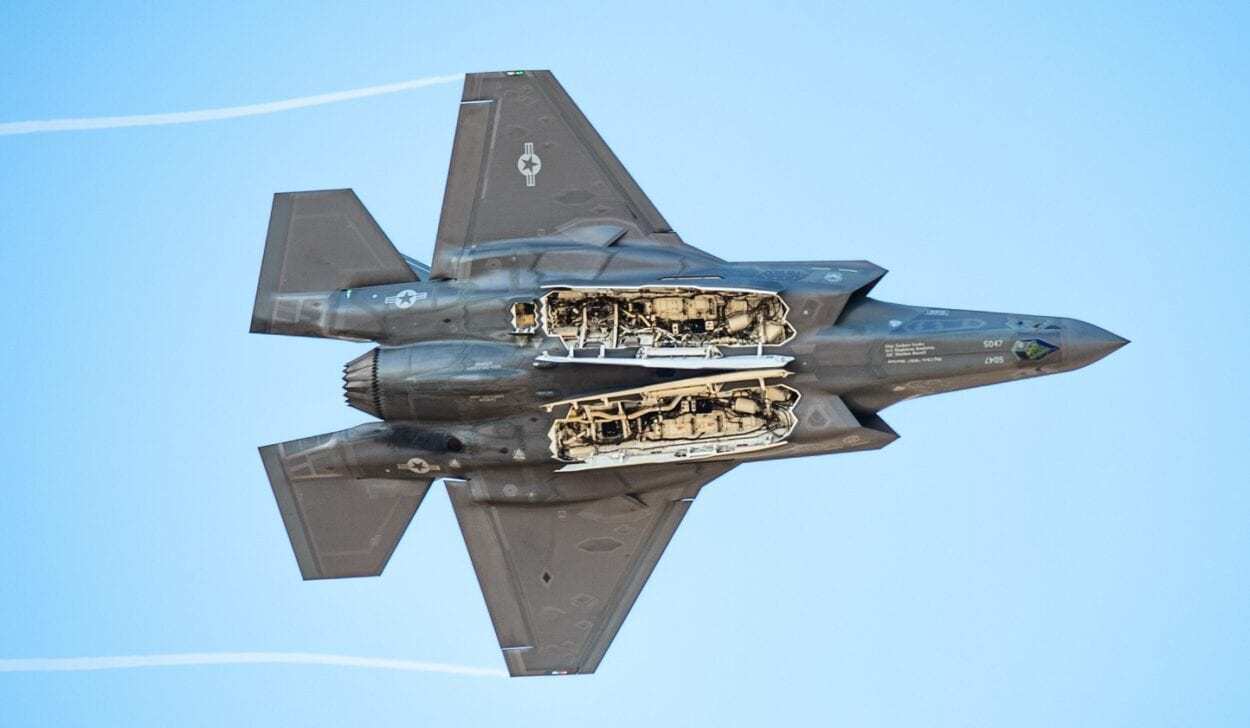One of my all-time favorite Middle East experts and all-around good person, Michael Rubin, spoke with me briefly fir a short interview on a wide range of topics. I especially wanted to pick his brain about Trump policy towards Iran, how a potential Joe Biden Administration would take on Tehran, and a possible F-35 sale to the UAE. You can see a lightly edited version of our conversation below:
Overall, can you give us a sense of your impressions of the Trump Administration approach when it comes to Iran? It seems Washington’s goal is to limit Iranian influence in the region, limit state-sponsored terror, and stop cold any drive towards nuclear weapons. Do you think those objectives have been met?
Trump had the right ideas, but his tactics undermined their implementation.
He recognized that the rhetoric surrounding the 2015 Iran nuclear deal did not reflect its reality, but it would have been far better to demand strict implementation to force the Iranians to walk away rather than unilaterally abandon the deal himself. That caused unnecessary reputational damage to the United States which both adversaries and European allies can use to their advantage in the future.
Given the stranglehold which the Revolutionary Guards have over the Iranian economy, the maximum pressure campaign was also wise. But he failed to match the hard power with soft power to show the Iranian people that they were not the problem. Frankly, he could have sent hospital ships to Dubai and offered free medical care for Iranians to show that our goal was not to punish them and that Iranians and Americans were natural friends.
If there were to be a Biden Administration, how do you see such an administration changing its approach to Tehran? Would they, for example, decide to rejoin the JCPOA? Perhaps rejoin but renegotiate in some way?
It’s easy to say ‘rejoin’ the JCPOA, but the sunset clauses built into the JCPOA means that Biden would be joining an evaporating agreement.
Whatever the election rhetoric may be, if they choose to re-engage Iran, it will mean re-negotiating. The question then becomes whether they will limit themselves to nuclear activities as the JCPOA did, or address Iran’s malign behavior throughout the region. The broader question then becomes what sort of leverage will Biden bring to the table. Some of Biden’s progressive supporters want him to relax sanctions immediately but then what would he use for leverage at the table? Likewise, while foreign policy now goes through a Washington partisan meat-grinder, it still might behoove Team Biden to assess the JCPOA’s provision of billions of dollars to Iran in sanctions relief and follow-on investment and recognize that cash does not necessarily bring peace.
Finally, there is a lot of talk floating around Washington that the Trump Administration could sell the F-35 Joint Strike Fighter to the UAE, something only Israel in the Middle East has at the moment. Where do you come down on this? Is this a good idea?
I have no problem with an F-35 sale. The UAE are allies and punch above their weight. They also face real threats. When it comes to arms sales in the Middle East, the questions I always ask myself is what the country would look like in ten years and what are the country’s relations with our great power rivals. If we are not sure about either, we shouldn’t risk the sale. Put aside the S-400 dispute with Erdogan, for example. In ten years, will Turkey be a democracy, or could it fall deeper into a rejectionist, paranoid, and ideological abyss? The fact that it may be reason enough not to sell them any weaponry. So too are their relations with Russia. Frankly, Israel’s flirtation with China is also a reason to questions whether the Jewish state should have access to top tier U.S. technology.
It’s not just a matter of selling weaponry like the F-35, however. We still base regional weapons sales upon calculations of a Qualitative Military Edge commitment to Israel whereby we ensure that Israel will always have a technological edge over Arab states which have a greater quantity of equipment. The problem here is that Israel no longer faces threats from most of the region, but instead shares a common challenge with Iran. We still utilize a 1960s and 1970s-era formulation, however, which needs to evolve to take into account the reality today rather than reality 50 years ago.

